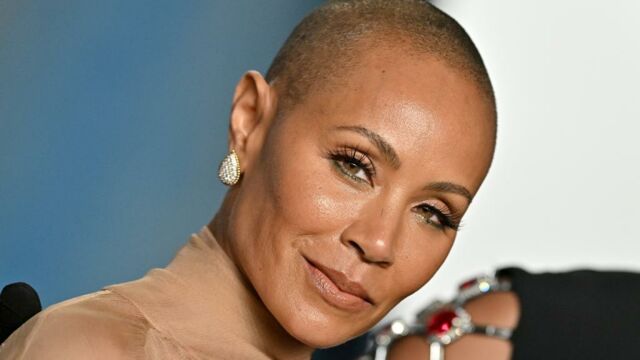Ever since Will Smith slapped Chris Rock across the face for making an insensitive joke about her hair, everyone has been wondering what exactly is the condition that is behind her hair loss. Here is everything you need to know about alopecia.
Discover our latest podcast
What is alopecia?
Both males and females can experience baldness, although it is most common among men. Alopecia areata is one type of the condition that results in pattern hair loss, while alopecia totalis causes complete hair loss on the scalp.
It can be brought on by ageing or a medical condition. According to experts, alopecia areata typically starts before the age of 40. Dr Sanjay Mehta, GP at The London General Practice said:
Around half of patients get it before they're 21, but most people, if they're going to get it, they'll have had it by the time they're 40.

Causes
Although the specific cause is unknown, there are some factors that make some people more prone to having it than others.
Family history: Hereditary androgenic alopecia or male-pattern baldness and female-pattern baldness occurs with ageing. It usually develops gradually in the form of receding hairline and bald spots in men and, for women, it results in thinning hair along the crown of the scalp. Dr Mehta, GP at added:
About one in five people with alopecia areata have a family history (of the condition).
Hormonal changes and medical conditions: Certain hormonal changes from pregnancy, childbirth, menopause and thyroid problems can cause permanent or temporary hair loss. Scalp infections, such as ringworm and a mental condition that causes people to persistently pull out their hair, could cause it too. Dr Mehta added:
Autoimmune is the other aspect of it - where your own immune system thinks your hair follicles are foreign and then tries to attack them, you get hair loss as a result.
Read more:
⋙ Alopecia: Which celebrities have the condition?
⋙ Will Smith: What illness is his wife Jada Pinkett Smith suffering from?
⋙ Hair loss: Avoid these foods to stop losing hair
Medications: Certain drugs and supplements such as those used for cancer, arthritis high blood pressure and heart problems, have hair loss as a possible side effect. Radiation therapy to the head may cause hair not to grow back.
Stress: For some people, long periods of stress can result in a thinning of their hair or the hair falling out. This is often temporary, especially for those predisposed to alopecia.
Treatment
The possible treatment for this condition depends on the type and the extent of hair loss. Some treatments can reverse the hair loss or slow down the rate at which hair is being lost. Dr Mehta explained:
With alopecia totalis, it often doesn't. We can sometimes find a benefit from strong steroid creams. We tend to only recommend that if there's more than 50% hair loss.
If the hair loss is less than 50%, they would have to observe the condition for a number of months or sometimes a year. Other treatment options include injectable steroids and light therapies.















